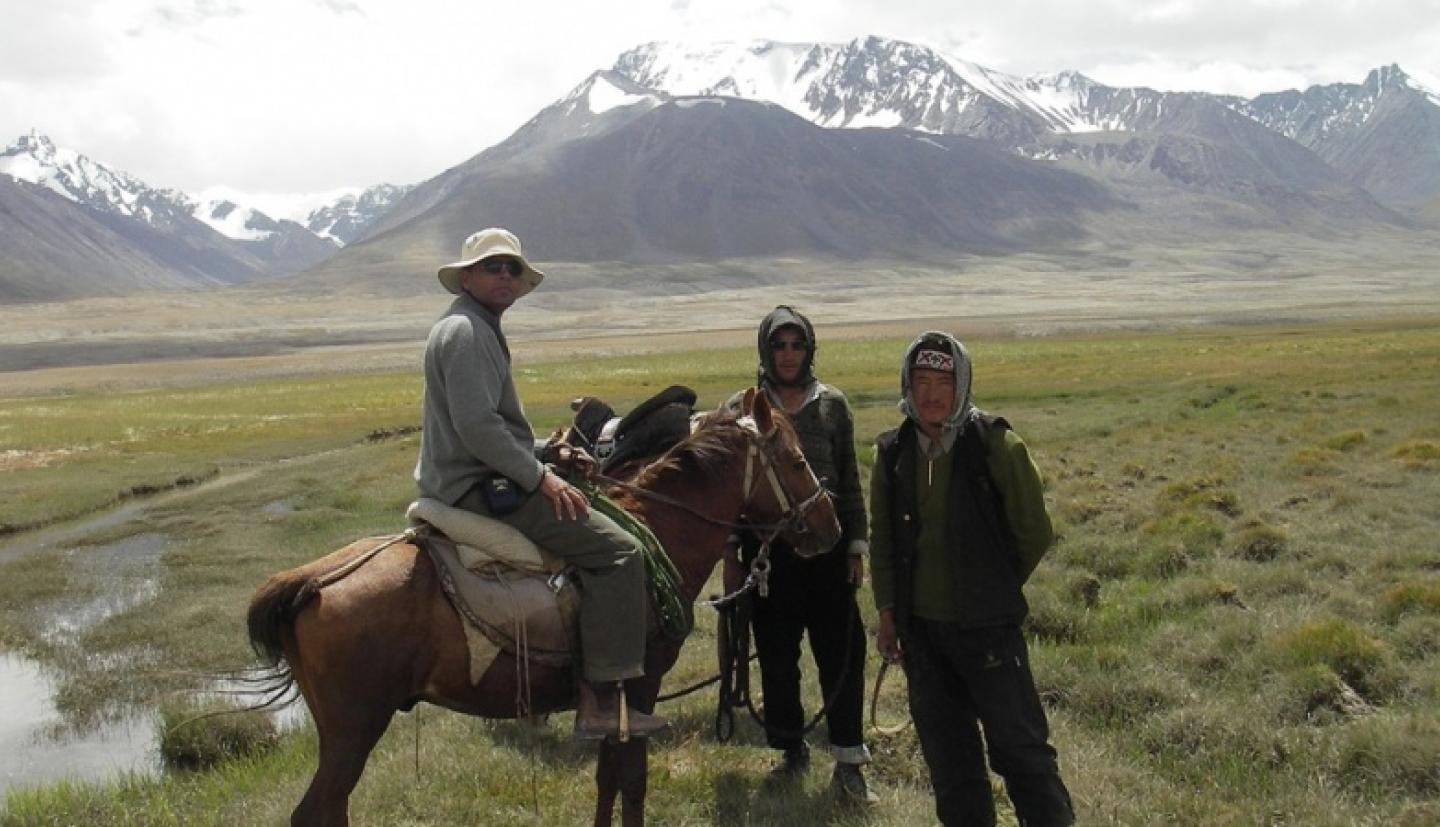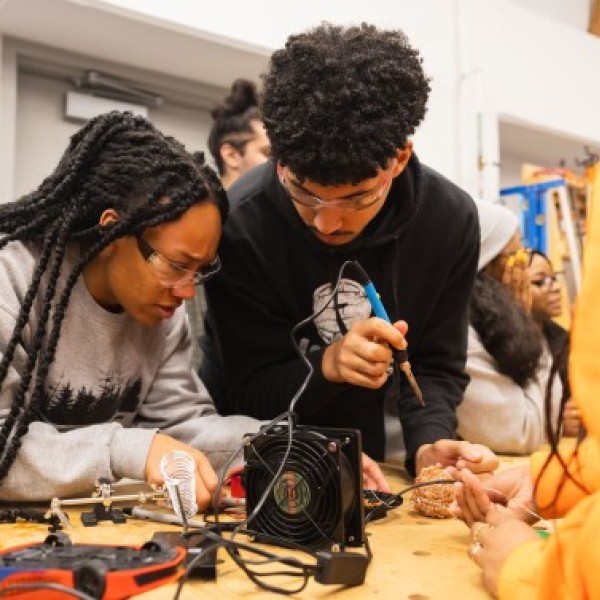Science for the greater global good earns a spotlight at the American Geophysical Union meeting in Washington, D.C., as Cornell’s Karim-Aly Kassam will co-lead a full morning on science diplomacy at a workshop, “Transcending Academic and National Boundaries and Advancing Scientific Discovery,” on Dec. 11, from 8 a.m. to 12:20 p.m. at the Grand Hyatt.
“Pressing challenges face society today and these challenges cannot be effectively addressed by any one country or discipline alone,” said Kassam, International Professor of Environmental and Indigenous Studies in the Department of Natural Resources. “Science diplomacy builds on the ability of scientists to transcend borders and connect individuals and communities across the world to attain common goals in order to resolve mutual problems.”
For more than a decade, Kassam has been conducting research in the Pamir Mountains in Central Asia, which extend through Afghanistan, Kyrgyzstan, Tajikistan and Xinjiang, China.
“When I arrived in the Pamir mountains in 2006, there was evidence everywhere of the dramatic impact of climate change. People were describing what was happening to their weather and habitat,” said Kassam, who is also a fellow at Cornell’s Atkinson Center for a Sustainable Future, which supported his Afghanistan research. “But in their languages, there were no words for it.”
Last summer during an extensive trip to the Pamir mountains and Kabul, Afghanistan, Kassam, a Canadian citizen, led a scientific symposium on climate change and food security at the Presidential Palace for more than 50 Afghan officials, educators and students. He explained how indigenous communities with differing ethnic groups can come together – through strength and resilience – to overcome climate change challenges they face.
As a result of the Kassam’s visit, Afghanistan’s President Ashraf Ghani made climate research and action a priority for the Afghan government. Ghani established a special unit to focus on combating climate change.
Discussion of climate change for Afghan officials is not easy, as they are distracted by daily conflict. “But there is little doubt that Dr. Kassam was hugely successful,” according to a post-meeting briefing issued by the Canadian embassy. “His ability to connect his observations on climate change to the personal experience and intuition of Afghans … ensured that his message was consistently found relevant and resonant.”
Describing the mood among smallholder farmers in the Pamir region for the past decade, Kassam said, “You can feel the anxiety and stress. Just like the polar regions that are at the vanguard of climate change, the mountains are similar – as we have a situation where communities and societies that did not contribute to anthropogenic climate change are at the forefront to face it.”
The top issue is food, Kassam explained; about 70 to 80 percent of the world’s food system still depends on smallholder farms. “It is unjust that the people who did not cause the problems of climate change are the ones facing it first. We need to help secure their food systems for not only their sake, but for humanity as a whole.”
In addition to Kassam, workshop organizers include Katia Kontar, Tufts University; Ester Sztein, Board on International Scientific Organizations, the National Academies; and Lexi Shultz and Brittany Webster, American Geophysical Union.
Cornell undergraduate and graduate students will also participate in the workshop, which will include keynote presentations and roundtable discussions with the International Arctic Science Committee; the International Union of Geodesy and Geophysics; the National Academies; NASA; the National Science Foundation; the U.S. Agency for International Development; and the U.S. State Department.





